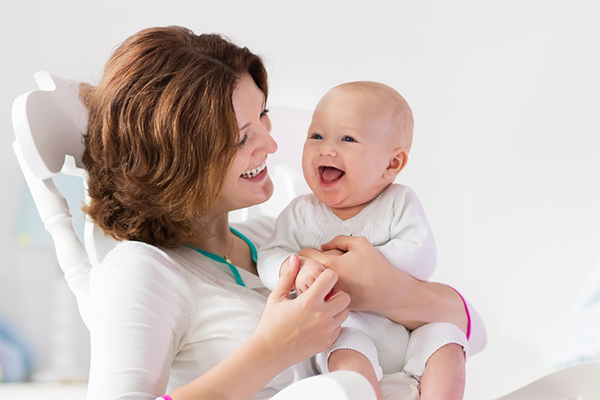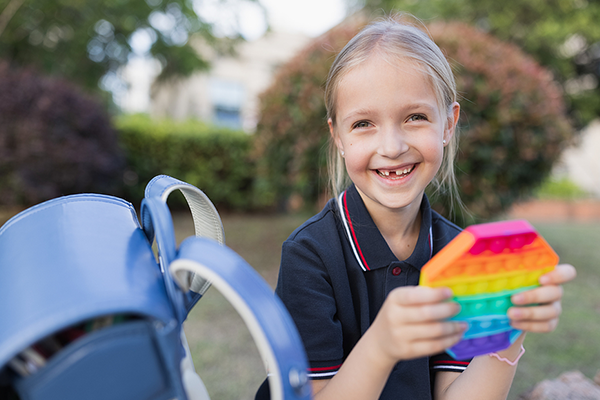It’s 24 hours after you’ve had your baby. You’re exhausted because you haven’t really slept since before labor started; you’re thrilled at this tiny new person in your arms; you’re a little freaked out that in a few more hours, you’ll be bringing this person home.
So it’s no wonder that most new parents don’t really remember their baby’s newborn screenings.
“Babies usually get their first bath after 24 hours,” said Dr. Alice Little Caldwell, a pediatrician and director of the inpatient nursery at Augusta University Health. “At the same time, there are screening tests that we do.”
They are:
• Metabolic testing: The state of Georgia requires that every newborn is tested for possible inherited disorders.
• A hearing test
• Screening for Critical Congenital Heart Defects, or CCHD
• Bilirubin test: This test checks for jaundice.
In most cases, newborns will go to a treatment room for the tests.
Metabolic Testing
In 1968, Georgia began universal newborn blood screenings for a metabolic disorder called PKU. Today, the program checks for 31 different inherited conditions, including sickle cell disease, hypothyroidism and cystic fibrosis.
The screening involves taking blood from your baby’s heel—just a few drops, collected on five pieces of tissue paper. The samples are then sent to a state lab, and results are available in two weeks and are shared by your child’s pediatrician.
“The test must be done after a baby has eaten,” said Caldwell—so if your newborn has been on IV fluids for some reason, the test may be delayed.
Many of these diseases are rare, but serious. So the newborn screening is important so that doctors can start babies on treatment before any symptoms show up. “These treatments can help prevent symptoms and any lasting neurological damage,” said Caldwell.
Hearing Test
For this test, it’s especially important that babies are in a quiet room. Nurses also make sure to wrap babies well to keep them calm and comfortable.
The test could involve an otoacoustic emission test or OAE, which uses a tiny earphone and microphone that are placed in a baby’s ear. Sounds are played, and response is measured.
If your newborn fails the test, it doesn’t necessarily mean your child has a hearing problem. There could be wax or fluid in the ear canal. Usually, if a child does not pass the hearing test, it is repeated before discharge home. If there’s still an inconclusive test, your child will need an auditory brainstem response test, which uses earphones and band aid-like electrodes. As sounds are played, the electrodes will measure responses from the hearing nerve to check for any hearing loss.
CCHD Screening
This screening is very simple, using a pulse oximetry probe—essentially a piece of tape across your child’s right hand and either foot that measures how much oxygen your child is getting.
In healthy babies, normal levels are between 95% and 100% saturation, with less than a 3% difference between the hand and the foot. If oxygen levels are too low (less than 95%), the test will be repeated up to two times, and if results are still less than 95%, your baby will need additional evaluations, which could include an echocardiogram, an ultrasound of the heart.
Bilirubin Test
This test for jaundice is the simplest of all, using a small handheld device with a soft rubber tip that the nurse will press to your child’s skin.
The test checks levels of bilirubin, a yellow pigment in blood cells that the liver usual processes and gets rid of. Too much bilirubin makes your child’s skin and eyes turn yellow—and if levels get too high, they could be toxic to your child’s brain.
If the screening test suggests jaundice, then a blood test, obtained by heel stick, will be done to determine how severe the jaundice is.
If the mother has O type blood or is Rh negative and the baby’s blood type is different from the mothers’, the infant may be at higher risk for jaundice, as are babies who are premature.
Treatment for jaundice is usually pretty simple: phototherapy, or blue light therapy. Babies can either be wrapped up in a biliblanket or may have blue lights over their bassinet.. If the blue lights are needed, newborns will need to wear tiny sunglasses to screen their eyes from the light.
“In many cases, babies pass these tests,” said Caldwell—which is why most parents rarely think about or remember them. “But they’re very important in those cases where newborns have a problem, allowing us to start a workup and begin treatment as soon as possible.”




